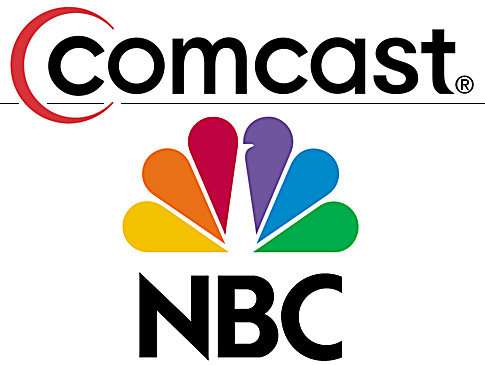FCC’s Comcast-NBCU Conditions Include 1,000 More Hours of News

WASHINGTON: The Federal Communications Commission leveled seven-year conditions for its approval of the joint venture combining Comcast and NBC Universal. The commission voted 4-1 Tuesday in favor of the deal contingent on a slew of requirements, including more local news, Spanish-language and kids programming, cheap broadband for low-income households and competitive access provisions.
The 26 NBC and Telemundo TV stations that will become part of the Comcast-NBCU joint venture will be required to add 1,000 hours of local news, an FCC official said. New, free, on-demand local programming, more Spanish-language fare will be added to the video-on-demand menu. and Public, Educational and Government--PEG--channels will be expended to VOD and online platforms.
The two broadcast networks will have to add more children’s programming, and a total of 1,500 kids’ titles must be added to Comcast’s VOD library. Comcast must also provide on-screen ratings and “improved parental controls” for its networks’ original programming. Interactive advertising will be restricted for content aimed at kids 12 and younger, and public service announcements on kids’ issues will be required.
On the broadband front, Comcast will have to make high-speed Internet service available for roughly 2.5 million low-income households at less than $10 a month, and netbooks, PCs or other computer equipment for purchase at $150 or less. Comcast will also expand its existing broadband network reach by about 400,000 homes, provide broadband to six additional rural communities, and free cable and broadband to 600 new schools and libraries in underserved, low-income areas.
The imposed conditions are intended to “address potential harms” from the merger, which folds NBC Universal into a joint venture controlled by Comcast. The transaction, valued at $30 billion, will yield in the nation’s largest media company with ownership in 13 national cable networks, 10 regional ones, two broadcast networks, 26 TV stations, movie production operations, dozens of online properties and cable TV distribution systems serving 23 million subscribers.
The deal marks the first time a pay TV provider will own one of the major broadcast networks. It drew opposition from competing pay TV carriers and independent networks, fearful they would be crushed out of the market by the behemoth that Comcast is to become. The FCC’s conditions are aimed at leveling the playing field for programming and distribution competitors, and are to remain in effect for seven years.
The commission said its conditions provided a better arbitration process for competing cable, satellite and telcoTV operators seeking access to Comcast’s programming, including its regional sports nets. Online video distributors are also provided programming access on terms comparable to those traditional video providers. Further protections for competitive online video distributors include adherence to network neutrality non-discrimination rules, prohibition of sweetheart deals and of restrictions built into set-top boxes.
Comcast will have to give up its managerial participation in Hulu.com, the online programming venture owned by NBCU, News Corp. and Disney. At the same time, it will have to continue providing programming to Hulu.
Just as competing pay TV providers are protected, competing programmers are as well. The FCC’s conditions prevent Comcast from discriminating against networks it does not own. If, for example, Comcast carries its own networks categorically--news, sports, etc.--competing networks must also be positioned accordingly. The carry pledged to add 10 new independent nets on its digital tier within eight years of the FCC’s approval.
The FCC’s merger conditions are similar to those set down by the Justice Department on Tuesday. (See “Justice Department OKs Comcast-NBCU with Strings Attached.”)
Among the commissioners voting Tuesday, only Democrat Michael Copps dissented on the grounds that the merger is not in the public interest. He also expressed concerns about public TV stations: “Comcast-NBCU has committed to carry the signals of any of those stations that agree to relinquish the spectrum they are presently using. Will public television no longer be available to over-the-air viewers?
“In sum,” he said. “this is simply too much, too big, too powerful, too lacking in benefits for American consumers and citizens.”
The American Cable Association, which lobbied vigorously for conditions on the merger, commended the FCC for putting program access protections in place. Washington public interest lobby Public Knowledge also resisted the merger. It’s legal director, Harold Feld, said the group was pleased with most of the conditions, but disappointed the commission didn’t require Comcast to make its network available on a wholesale basis.
Shares of General Electric (NYSE: GE), which will retain a 49 percent share of NBCU with an option to divest over time, jumped about 20 cents to nearly $19 on the news of regulator approval of the merger. Shares closed at around $18.60. Comcast shares (NASDAQ: CMCSA) opened at $22.76, edged up briefly over $23, and settled back down to $22.78 at close.
-- Deborah D. McAdams
The professional video industry's #1 source for news, trends and product and tech information. Sign up below.
